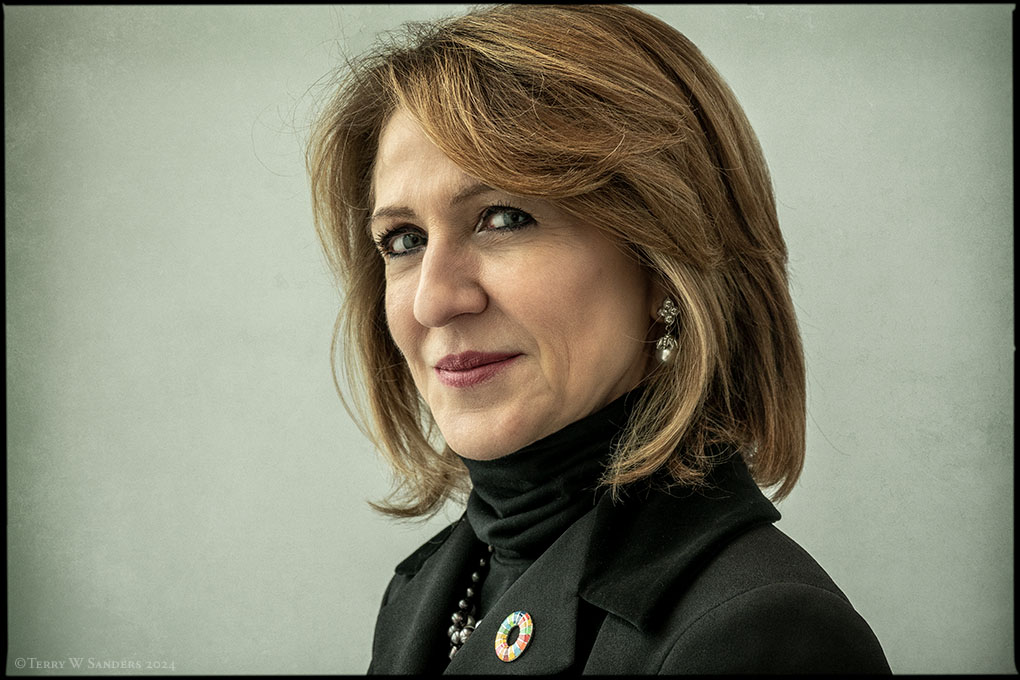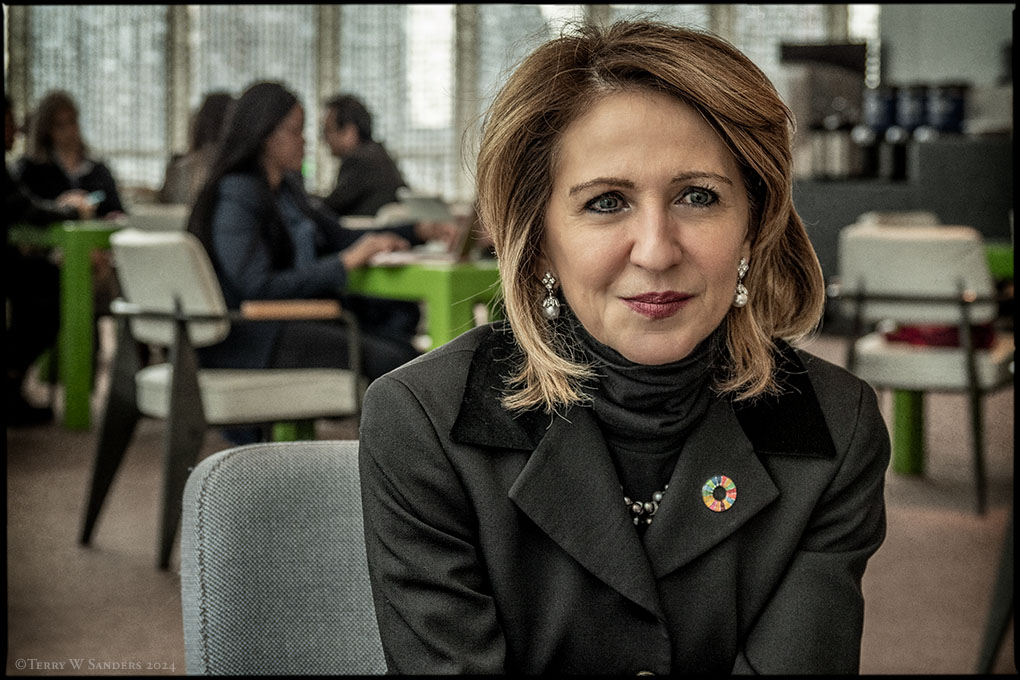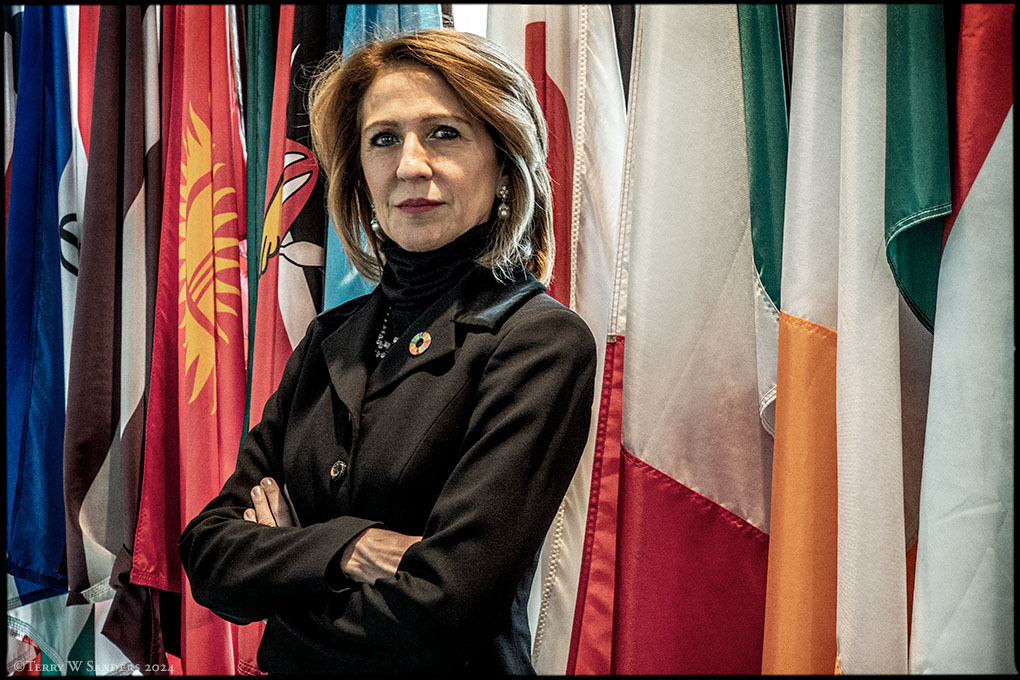Roraima Ana Andriani, a distinguished figure in the field of international law enforcement and cooperation, has recently assumed the role of Special Representative of the International Criminal Police Organization (INTERPOL) at the United Nations. With over three decades of experience in the sector, she brings a wealth of knowledge to her position, having previously served in roles such as a Europol official and played a pivotal role in strengthening INTERPOL’s national and regional offices worldwide. We met her at the UN headquarters and she sheds light on her responsibilities, the evolving landscape of global security challenges, the importance of cooperation, and her vision for addressing contemporary issues in her current capacity.
Your recent appointment as the Special Representative of INTERPOL is a notable recognition of your extensive experience in international cooperation. Could you share some insights into your main responsibilities and objectives in this role?
“Absolutely. This appointment is a testament to a lifetime dedicated to international cooperation, particularly in the realm of multilateral law enforcement. Over my thirty-plus years in this field, the primary objective has been to foster cooperation that enhances global security. Leading the office in New York, my main task is to identify synergies and convergences between INTERPOL and the United Nations (UN). The value of multilateralism is crucial in addressing global challenges, and it is essential to emphasize its significance.
INTERPOL, with its neutral and independent character, plays a key role in police cooperation even during geopolitical tensions, addressing issues like terrorism, organized crime, and illicit trafficking. In addition to providing technical support through tools like global databases and operational coordination, INTERPOL actively contributes to the relationship between security and development. Collaboration with the UN Counter-terrorism Office, involvement in drafting resolutions, and aligning strategies with the UN 2030 Agenda and Sustainable Development Goals demonstrate our commitment to a holistic approach to global security challenges.”
Given your extensive experience, what do you consider to be the most urgent global challenges in the fields of security and crime fighting today?
“According to the INTERPOL Report on criminal trends, transnational challenges such as drug trafficking, cybercrime, financial fraud, environmental crime, human trafficking, online sexual abuse of minors, and terrorism remain major issues. The rise of synthetic drugs, especially opioids like fentanyl, poses a significant emergency due to their low production costs, leading to increased supply and consumption.
Organized crime is evolving into more flexible and sophisticated forms, operating as criminal networks with diverse skills and sectoral specializations. To counter this, INTERPOL has developed tools to strengthen investigations related to the identification of illicit assets and money laundering. Disrupting their business model by following the money is a potent strategy against organized crime.”

Having been involved in cooperation with both regional organizations like Europol and global organizations like INTERPOL, how have forms of cooperation evolved, and what challenges have emerged over time?
“The concept of security has evolved, and there is now a growing awareness of the essential value of cooperation and the various aspects of initiatives aimed at strengthening coordination. My experience in both Europol and INTERPOL has highlighted the importance of developing forms of coordination that avoid duplication and fragmentation while optimizing cooperation with regional institutions.
Coordination is fundamental for international cooperation, and INTERPOL has initiated ‘The Dialogue,’ engaging numerous regional organizations to harmonize priorities and operational models. The challenge lies in ensuring that national, regional, and global databases communicate effectively, enhancing information sharing while respecting principles such as national sovereignty, human rights, data security, and data protection.”
You played a significant role in strengthening INTERPOL’s national and regional offices. What are the key elements in building effective regional security and police cooperation strategies?
“Regional offices play a crucial role in understanding local realities and strengthening the capabilities of member states. Assessing needs, priorities, and cultural nuances is vital. Managing regional offices requires listening skills, intuition, and flexibility. In Africa, for instance, collaboration with the African Union and regional bodies involves addressing security challenges, fundamentalism, and instability. Strengthening partnerships with the UN and INTERPOL can contribute to promoting transparency, good governance, human rights protection, gender equality, and addressing global issues like climate change and terrorism.”
With extensive multicultural experience gained from missions in over 110 countries, how do you manage cultural differences in addressing technical, negotiation, and diplomatic issues?
“Traveling allows for assimilating other cultures, and I’ve learned the importance of prudence, listening, and clear communication. Playing the cards of dialogue, trust, and inclusivity is crucial during negotiations. Adapting the terms of dialogue to cultural differences requires experience, sensitivity, intuition, and professionalism. A clear goal and well-defined ideas are prerequisites before sitting at a negotiation table.”

What steps and key initiatives do you plan to undertake in your current role as the Permanent Representative of INTERPOL?
“In navigating INTERPOL into the new millennium, we must address contemporary issues that were not part of our traditional focus. Engaging with innovative technologies, artificial intelligence, cybercrime, and climate change is imperative. These global challenges require a professional commitment, and I aim to strengthen INTERPOL’s role by fostering partnerships and projects within the UN framework. Additionally, I will prioritize addressing the roles of women in peace and security, investing in the youth, combating environmental crimes, and preserving the cultural heritage of every society.”
How was your experience returning to New York, this time to live? What left the most significant impression on you?
“Upon returning to live in New York, I was pleasantly surprised by the city’s vibrant energy. One discovery that resonated deeply with me was stumbling upon the square dedicated to Joe Petrosino, a NYPD officer of Italian origin. Petrosino’s creation of a section dedicated to combating organized crime in New York in the early 1900s left a lasting impact. His heroic efforts, tragically ending with his death in Sicily, symbolize the early days of police cooperation. This discovery vividly brought to mind the collaborative struggles of judges Falcone and Borsellino with the FBI, highlighting the nascent stage of international cooperation against transnational crime.”












